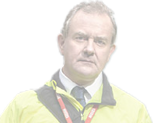Article by Stephen Daldry, Hugh Bonneville and Lindsay Duncan for The Guardian
Shortly before his bittersweet comedy was revived at the Donmar in 2014, the playwright Kevin Elyot died aged 62. As it transfers to the West End, Stephen Daldry, Hugh Bonneville and Lindsay Duncan remember their friend.
Stephen Daldry
It was quite early in my tenure as artistic director at the Royal Court when My Night With Reg landed on my desk. It was commissioned by Hampstead theatre, but they decided not to show it. I’ll never know why. It was one of those plays that we read, and straightaway said: “Let’s do it”. I sent it to Roger Michell, a director I really wanted to work with us, and again his reply was an instant “yes”.
We put it on with a wonderful cast led by David Bamber. It was the first time a play transferred from the theatre upstairs to the West End, and that felt like a big moment – [it was exciting] that plays we put on were going to have a greater resonance, and speak to a bigger audience.
It is an incredibly funny play. We billed it as a comedy, but it isn’t a comedy at all – it is this heartbreaking tale of emotional yearnings and mistakes and infidelities, which really categorised the rest of Kevin’s work afterwards.
It captured the mood of a particular time. Don’t forget this was when Aids was breaking down upon us all. But Kevin, very cleverly I thought, never described it as an Aids play, so it never got pigeonholed. I think audiences who saw it on the West End thought it was this tragicomedy. There were other plays tackling gay issues on the British stage, but none had Kevin’s lightness of touch and humour. Kevin himself was this wonderful figure – a funny, careful, charming and heartfelt soul.
It was a moment when a new wave of playwrights – Nick Grosso, Joe Penhall, Sarah Kane – were bursting on to the scene. People used to call it “in yer face” theatre. People often thought Kevin was part of that, but he came from a much softer, more classical playwriting tradition. My Night With Reg is an incredibly well-structured play, with these great cliffhangers at the end of each of the three acts.
He went on to write some wonderful plays. Mouth to Mouth, which he did at the Royal Court, had that same theme of yearning. Forty Winks starred Carey Mulligan in 2004. He is remembered for My Night With Reg mostly because it was his breakthrough play. It was such a surprise to everybody – this relatively unknown playwright bursting on to the scene.
In a sense, the play was about its time, but the themes of yearning and lost love are universal and still resonate. Though it is set in the 80s, I don’t think it’s a play only of the 80s – it speaks to us directly and vividly now.
In many respects, My Night With Reg is the perfect West End play: audiences will either be hysterically laughing or crying. It is a really fun evening out, and then you come home feeling deeply touched. And you can’t ask for much more than that.
Hugh Bonneville
My first acquaintance with My Night With Reg was when I got the part of Daniel, an ebullient, flamboyant character who jets around the world. He’s the extrovert in the group of friends that the play is based around. I’d been aware of Kevin’s work since his television play Killing Time. I was so mesmerised by it that, when it finished, I jumped off my sofa to look at the credits to see who had written it.
At the time Reg came to the West End, I was co-producing another play, Beautiful Thing by Jonathan Harvey, that had just transferred from the Bush theatre. It was a very dynamic time, and there was a real sense these two “gay plays” – as they were christened – were rattling the conventions of what made a West End play, tackling subject areas that at the time weren’t so palatable for a theatregoing audience.
When the director Roger Michell asked me if I’d like to come and replace John Sessions as Reg, I hadn’t seen the play yet. We had a jokey rivalry, and I was loyal to Beautiful Thing. But when I saw John Sessions in the role, I was utterly bewitched. I don’t think I’d ever been in an auditorium where the laughter was so uproarious and the aching, painful silences were so intense.
I was nervous when I went to see a revival of it last autumn at the Donmar: would it still stand up 20 years on? But it did – it’s a truly lasting play. It’s about the power and the poignancy of lost possibilities; of moments you misinterpreted in your younger days and they come back to you 20 years later, and you realise that if you’d turned left instead of right, your life may have been very different. We can all recognise that, whether we’re gay, straight or a pineapple on the moon.
Kevin’s own character lives on in that play, too. Any writer can’t help but put themselves in their work in a way. Kevin was a well-educated guy, and quite witty and fun, but there was always something slightly of the observer about him – not unlike the character Guy. But there are also flashes of him in Daniel. He had a real waspish wit, but with it this tremendous sense of compassion for others.
Another fine play of his was The Day I Stood Still, which had the same themes – a man who was in love with another man at university and he never told him. But he also had a great breadth as a writer. The last time I saw him was on the set of a Marple episode that he’d written for. And his BBC adaptation of Patrick Hamilton’s Twenty-Thousand Streets Under the Sky was beautifully etched.
But there’s no question that Reg was perhaps his finest play, and it is one of my favourite things I have ever performed onstage. Because from a performer’s point of view, when it’s played right, it absolutely makes you weep with laughter and it absolutely makes you weep because of its poignancy. That pendulum swing of emotion makes it both a joy to perform and a pleasure to watch.
Lindsay Duncan
Kevin and I met in Birmingham when we were teenagers. We were pupils at the King Edward’s schools – single-sex schools, separated by a long drive. I somehow crossed that drive, got involved with their drama activities, and made a friend for life. Our young selves could never have imagined a future in which we worked together professionally . And though the notes we left for each other with our respective school porters showed Kevin to be a delightful and wickedly witty correspondent, I had no idea he would become a successful writer.
When Kevin went to Bristol University, I followed him. I was always following: he knew which films we should see, what music we should listen to, what writers we should read. He was always curious, always sharp. We acted together in Joe Orton’s Funeral Games at university, though I wasn’t a student. Another crossing over, I suppose. I was a barmaid and bus conductress, hoping to get into drama school.
Then, somehow, we were both out in the world as actors. It was pretty thrilling to be cast together in Doug Lucie’s play Progress, at the Bush theatre in London. That was a cool job for both of us. Kevin was a very good actor. Confident, charismatic and he always had that wit. In 1982, something startling happened: Kevin’s first play, Coming Clean, was produced at the Bush, and it was a success. I don’t remember any announcements about a change of career. Quietly, he had become a writer. He was really good – he had a distinctive voice.
This man, who was such riotously good company, had a serious side, and nothing was taken more seriously than his writing. He worked with precision, and he was playful but meticulous with the structure required to contain and then reveal the secrets kept by his characters. There were always secrets. In real life, he kept secret the fact that he was writing a part for me. I’d always wanted to be in one of Kevin’s plays, but I don’t think I banged on about it. Then, suddenly, there was this finished play called Mouth to Mouth. I played a woman called Laura, whose best friend was a writer … It was produced by the Royal Court and transferred to the West End. This was the future our young selves could never have imagined.
His adaptations were as successful as his plays. I appeared in The Mirror Crack’d from Side to Side, one of his many Agatha Christie adaptations, and Christopher and His Kind, with Matt Smith playing Christopher Isherwood. He applied the skills he used in his plays – the puzzle solving, the sly humour, the masterly withholding of information – and the Christies, the Poirots and the many novels he adapted for TV shone from the care he took. But the lack of control often drove him crazy. We lived near each other in north London, and over dinner he would vent his frustration with lacerating humour. Perhaps he’d been commissioned to write a five-part adaptation of a novel and, having done months of meticulous work, was then asked to make it three. For a master of structure, this was an outrage. His fury was majestic. For all the success of his adaptations, the next play was always tugging at him.
My Night With Reg almost defines Kevin as a writer. His familiar themes of secrecy and longing are threaded through a masterly structure, completely under his control, remorseless in its lack of sentimentality and, therefore, heartbreaking and hilarious.
My Night With Reg is at the Apollo theatre, London, until 11 April.








